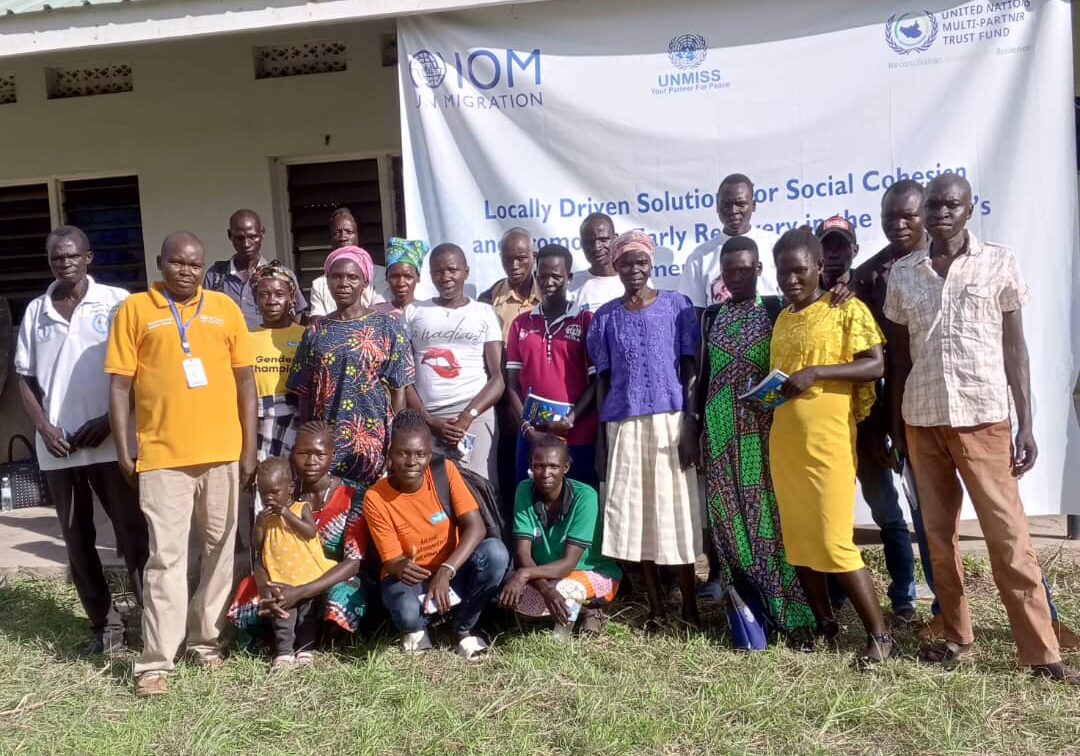- Expertise
- About us
-
Our Purpose
Find out more about CTG’s origins and vision
-
Our Leadership & Management
Meet the team driving CTG’s vision around the globe in conflict settings
-
Our Policies
We adhere to the highest levels of ethical management and corporate governance
-
Contact CTG
Get in touch to find out more about our services
-
CTG’s Culture
At CTG we hire EPIC people
-
- Impact
-
UN Recognition
Global recognition for our social good efforts
-
Sustainable Development Goals
Our commitment to advancing the SDGs
-
Shared Value
Solving social challenges with business solutions
-
Female First
Increasing female representation in humanitarian jobs
-
Putting People First
Leaving a lasting impact on the communities where we work
-
Committed To Good Summit
Accelerating development progress through localised collaboration
-
- Engage
- Work with us
-
Jobs
Find your next post with CTG and sign up to our jobs portal
-
Tayo
CTG’s remote workforce management software
-
Duty Of Care
Protecting our staff and minimising risk in conflict-affected areas
-
Internships
CTG’s Women in Aid: Internship & Mentorship Programme
-
Staff Support
CTG Wellbeing, CTG Learning & CTG Helpdesk
-
South Sudan Lubajo Raymond

A Team Leader of Counselling in the Department of Mental Health and Psychosocial Support (MHPSS), Lubajo Raymond earned years of experience as a teacher before transitioning to humanitarian work in 2020.
When you join a humanitarian organisation, it's all about growing others.
Born in Kajo Keji, South Sudan, Lubajo Raymond overcame personal and financial hardships to forge a successful teaching career. In 2020, Lubajo returned to his birthplace to work as a humanitarian. Now, Lubajo shares his story.
From teacher to humanitarian
“I was born in 1979 in Kajo Keji county,” explains Lubajo. “In 1984, I lost my father in a car accident and was then raised by a single parent. In 1987 we ran to a refugee camp in Uganda due to civil war where I completed my primary and secondary schooling. I began working in the teaching professional until, by God’s grace, I got a scholarship to study Primary School Education at Shimoni Primary Teachers College (SPTC) in Uganda. I then joined the University of Juba to study a Bachelor of Education, but I couldn’t finish due to financial problems.”
“After my drop out from the university, I joined teaching profession again in order to support my family. In December 2016 I left Juba to take my family to a refugee camp because of another civil war. In the camp, we volunteered to open a school within the camp for the children to learn, and after a year we got support from Windle International Uganda.”
Lubajo resigned from the teaching profession in 2020 when he took a humanitarian job in Kajo Keji, which offered him a higher salary while providing an opportunity to do good.
Supporting the community
As a Team Leader of Counselling in the Department of Mental Health and Psychosocial Support, Lubajo’s key responsibilities are focused on MHPSS, including offering counselling and guidance, following up with clients both at home and in hospital, the provision of Psychological First Aid (PFA), awareness raising on MHPSS-related topics and referring clients. Beyond that, Lubajo also prepares weekly and monthly reports and carries out any duties assigned to him by his supervisor.
“I spend my free time outside of work by staying home and spending time with my family, especially my small children, attending church services and community meetings, and watching football on TV,” shares Lubajo.
When working with humanitarian organisations, work hard with diligence, obedience empathy, an open heart and mind and respect for everyone regardless of their positions.
Working in the humanitarian field
“If you want to work with humanitarian organisations, first start growing yourself intellectually, morally, spiritually, ethically, etc,” shares Lubajo. “When you join humanitarian organisations it’s all about growing others through mentoring, meetings, workshops and awareness raising.”
“When working with humanitarian organisations, work hard with diligence, obedience, empathy, an open heart and mind and respect for everyone regardless of their positions. Cooperate with all your workmates and put your personal problems below the organisation’s goals.”
Celebrating successes
Lubajo cherishes his ability to make a difference as a humanitarian:
“The particular moment or experience from my job that has deeply impacted me was a success story during a project last year. During one of our awareness-raising sessions, a 54-year-old man came to me for counselling voluntarily because the words I spoke during the awareness campaign touched him deeply.
“During our discussions, he was able to share his stress factors – like how he separated with the wife, how he developed mental illness and how he lost his wealth – and I ended up enrolling him in further counselling.”
For Lubajo, working as a humanitarian has a twofold benefit: his salary allows him to support his family, and the guiding principles and professional code of conduct of the organisation guide his lifestyle and earn him respect from his community.
Hope for South Sudan
Although Lubajo works for a humanitarian organisation, his hope is that one day his people won’t be in need of humanitarian aid: “The most important thing we need in South Sudan is total peace, which is characterised by good governance with democracy, freedom of speech, security, justice and equality for all.”
“With this we can do work for ourselves, and we stop depending on humanitarian support so that South Sudan can meaningfully be called an independent nation.”
Read more stories from the field here.